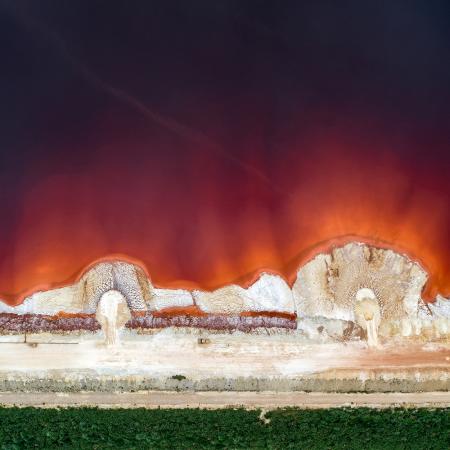"The Situation" II - Kimberley
...a glimpse of how the past was, how the future can be...
Sabata-mpho Mokae is a South African novelist, writing mainly in Setswana and occasionally in English. He is the author of Ga ke Modisa (Oxford UP, 2012), Dikeledi (Oxford UPress, 2014) and Moletlo wa Manong (Xarra Books, 2018). A winner of the M-NET Literary Award for Best Setswana Novel, the M-NET Film Award and, twice, the South African Literary Award, he teaches Creative Writing at the Sol Plaatje University in Kimberley.
A Glimpse of Hell
In the 1980s, the apartheid regime became more and more desperate. South Africa was a pariah state and pressure was mounting for the white supremacist government to release political prisoners, un-ban political parties, and hold elections on a “one man, one vote” principle. In their desperation, the government deployed soldiers and paramilitary police units in the townships where most black people lived. The country was governed through the fear of the gun barrel. Many people were beaten up. Some were made to disappear. Some were humiliated in front of their children. The armed men asserted the State’s power. I was too young, and just like other children my age, I was shielded from the worst. It was only through the state-owned radio station that I got to know what hell we lived in. I also heard about members of my extended family who disappeared without a trace, were thrown in jail, or had skipped the country.
Fast forward to the year 2020. After lockdown was declared in the wake of the Coronavirus global pandemic, soldiers carrying assault weapons rained on South African townships. In no time photographs and videos of them assaulting people, humiliating them by forcing them to do push-ups and walking into their homes and beating them to death, started making rounds. Their actions, despicable as they were, could not be equated to what happened during apartheid. But just like in the past, the police and the army were the face of the authority of the state. This provided a glimpse of how the past was, how the future can be, if these actions went unabated.
I have learned that if we are not careful as a nation, we will descend into the darkest depths from which it will be difficult to come out. Lockdown by its very nature limits people’s rights, but there are rights that are sacred and non-negotiable, like the right to dignity and life. Sadly, these rights are not worth the paper they are written on when you are faced with a peace officer who has conveniently forgotten all references to “peace” in his job description. If there is anything I learned during the lockdown, it is that basic human rights are sacred but that they can disappear at the wink of an eye and so must be jealously guarded
Spring 2020
Vol 10 No 3
"The Situation" - II
- Editorial
- Alice Yousef (Jerusalem)
- Minae Mizumura (Tokyo)
- Chandrahas Choudhury (New Delhi)
- Peter Kimani (Nairobi)
- Jacqueline Goldberg (Caracas)
- Andrea Hirata (Sumatra)
- Mabrouck Rachedi (Paris)
- Kavery Nambisan (Kodava)
- Ameena Hussein (Colombo)
- Helon Habila (Fairfax, VA)
- Amira Gehanne Khalfallah (Istanbul/Algiers)
- Marjan Strojan (Ljubljana)
- Med Magani (Algiers)
- Beaudelaine Pierre (Minneapolis/Port-au-Prince)
- Mohib Zegham (Kabul)
- Usha K R (Bengaluru)
- Nick Yu (Shanghai)
- Ksenia Dragunskaya (rural Russia)
- Haifa Abu-Al Nadi (Amman)
- Nikola Madzirov (Strumica)
- Soheil Najm (Baghdad)
- Antoinette Tidjani Alou (Paris/Niamey)
- Sabata-Mpho Mokae (Kimberley)
- Khaled Khalifa (Latakia)



